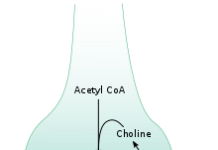High cholesterol is a condition that occurs when levels of cholesterol in your blood are elevated enough to cause health problems, including heart disease and stroke. Sometimes known as hyperlipidemia, high cholesterol is painless and doesn’t cause any symptoms until a person develops severe heart disease.
According to the Centers for Disease Control and Prevention (CDC), heart disease is the leading cause of death in the United States, and stroke is the fifth leading cause.
Produced by your liver, cholesterol is a dense, fatty substance that’s found in every cell of your body, and it is considered essential to many life-sustaining functions. It helps your body make hormones and vitamin D, and it's also found in compounds that your body creates to help you digest food, such as bile.
Circulating in the bloodstream in small bundles of fat and protein called lipoproteins, cholesterol comes in two primary types: low-density lipoprotein (LDL), which contributes to the buildup of fatty plaques, and high-density lipoprotein (HDL), which is thought to protect from heart disease and stroke. A blood test known as a lipid panel can measure both LDL and HDL cholesterol, as well as triglycerides, the most common type of fat in the blood.
Signs and Symptoms of High Cholesterol
Typically, high cholesterol doesn’t cause any symptoms until it causes a medical emergency, like a heart attack or stroke. These heart-disease-related events don’t occur until high cholesterol levels have led to fatty plaque building up in the arteries. In turn, this leads to a narrowing of the arteries and a change in the makeup of the arterial lining, also known as heart disease.
Causes and Risk Factors of High Cholesterol
Heredity
Having a family history of high cholesterol or heart disease also means you are more likely to have high cholesterol.
Although it is relatively rare, some people also carry a genetic condition called familial hypercholesterolemia, which causes extremely high LDL levels at a young age and, if left untreated, can lead to early-onset coronary artery disease and heart attacks. The CDC estimates that 1 million Americans, or a third of a percent of the U.S. population, have familial hypercholesterolemia.
Age
Due to age-related metabolic changes, including how the liver removes LDL cholesterol from the blood, everyone’s risk of high cholesterol increases as they get older.
Gender
Women over 55 or who have completed menopause tend to have lower LDL cholesterol levels than men. In general, men tend to have higher HDL cholesterol levels than women.
Diet
Level of Physical Activity
Tobacco Use
Obesity
Diabetes
Duration of High Cholesterol
Prevention of High Cholesterol
Regularly monitoring your cholesterol levels can also help prevent your numbers from getting too high or low. In general, healthy adults should check their cholesterol every four to six years, but your doctor may ask to check your cholesterol more often depending on your age, overall health, and other risk factors. There are other ways to prevent high cholesterol, too
Eat a Healthy Diet
Eating a diet low in saturated and trans fat and high in fiber and unsaturated fats can help prevent high cholesterol. Foods like oatmeal, beans, avocados, and vegetable oils can lower LDL cholesterol and increase HDL cholesterol levels.
Get Regular Physical Activity
Quit Smoking
Maintain a Normal Weight
Having a BMI in the overweight or obese range highly correlates with having excess body fat, which in turn can affect how your body processes cholesterol. Excess body fat also slows down the ability to remove LDL cholesterol from the blood, raising your levels and increasing your risk of heart attack and stroke.
Limit Alcohol Intake
Research and Statistics: How Many People Have High Cholesterol?
Heart disease is the leading cause of death in the United States, and stroke is the fifth leading cause.
Related Conditions
High cholesterol is associated with other medical conditions:
- High Blood Pressure High cholesterol is linked to high blood pressure because cholesterol-filled plaques can narrow arteries, forcing the heart to pump harder.
- Heart Disease Without management, high cholesterol contributes to the development of heart conditions like heart attack and peripheral arterial disease.
- Stroke If left untreated over the long term, high cholesterol contributes to the risk of stroke, a type of severe blood clot or blockage of blood flow to the brain.
- Type 2 Diabetes People with diabetes tend to have high LDL and low HDL cholesterol levels, as well as higher levels of triglycerides.


Editorial Sources and Fact-Checking
- Blood Cholesterol? National Heart, Lung, and Blood Institute.
- High Cholesterol: Symptoms and Causes. Mayo Clinic. July 20, 2021.
- High Blood Cholesterol: What You Need to Know. National Heart, Lung, and Blood Institute.
- HDL (Good), LDL (Bad) Cholesterol, and Triglycerides. American Heart Association. November 6, 2020.
- Triglycerides: Why Do They Matter? Mayo Clinic. September 29, 2020.
- High Cholesterol Facts. Centers for Disease Control and Prevention. September 8, 2020.











































